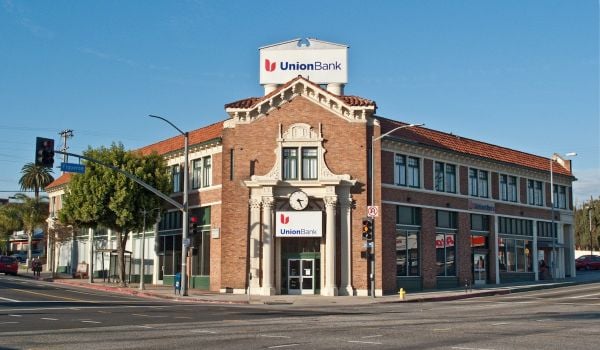At La Cocina Incubator Kitchen, in San Francisco’s Mission District, 100 percent of the businesses launch with less than $5,000. No, the entrepreneurs aren’t issued some kind of reality TV-style challenge. The amount is owed to the fact that the incubator does work exclusively with low-income people, mostly immigrant women and women of color, who have less access to startup capital. A majority of La Cocina participants are Latina. In the past six years, La Cocina has moved 22 businesses — which get help taking a recipe or an informal street hustle and turning it into a formal business — from almost nothing into full-fledged brick-and-mortar locations.
In Chicago, the 1871 Incubator’s WiSTEM program for women entrepreneurs is now in its third cohort. Each group is about a dozen businesses; each cycle fosters a community of women entrepreneurs to support each other in creating technology solutions for all kinds of problems. In a world where just 7 percent of venture-backed startup founders are women, 1871 designed its WiSTEM curriculum in direct response to what women entrepreneurs said they needed to get noticed.
These are just two examples of the 68 incubators and accelerators in 32 states that recently won support as part of this year’s cohort of the Small Business Administration’s Growth Accelerator Fund.
“We’re always looking for those pockets where there isn’t as much injection of capital as there should be,” says Nareg Sagherian, who manages the SBA competition, which seeks out organizations that are supporting entrepreneurs with a specific intention of reaching those whom the economy has historically left by the wayside — due to gender, race and ethnicity, or geography and sector.
The program is one of the newest at SBA, just in its third annual round of awards. For the purpose of the Growth Accelerator Fund, SBA defines accelerators as organizations that provide networking, mentorship, physical or virtual shared space and sometimes funding to startups for a pre-defined period of time. The fund provides these organizations $50,000 grants in exchange for a yearlong commitment to track and report data back to SBA on follow-on capital raised, jobs created and sources of funding for the accelerators.
In just the previous two cohorts, the 138 accelerators involved in the program reported back to SBA that startups moving through their programs have raised around $1.5 billion in follow-on capital and created 20,000 new jobs. Sagherian is quick to emphasize that these accelerators are scattered across around 40 states — spreading out far beyond New York, California, Massachusetts and Texas, which account for 74 percent of venture capital invested in the U.S.
At La Cocina, 30 incubator members raised $3 million in follow-on capital last year. At 1871, WiSTEM cohort members have raised $3.9 million in funding, creating 85 new jobs.
SBA awards the grants through a competitive process that involves each accelerator making a video answering broad questions like “Why are you awesome?”
“We get a lot of feedback from accelerators saying they wish there were more government programs like this,” Sagherian says. “They submit applications in June, and if they win, get the money in their bank account by September.”
The Growth Accelerator Fund is in part a response to the wave of incubators or accelerators popping up all around the U.S., with focuses well beyond tech. There are now over 200 kitchen incubators across the country, an increase of 50 percent since March 2013, according to a recent report from American Communities Trust. In the Growth Accelerator Fund’s 2015 cohort, the median year of inception for winners was 2013.
Also in the 2015 cohort, of the 88 winning applicants, 44 percent were women, and 41 percent were considered “underserved,” which SBA defines by sector or location as well as race or ethnicity. “We see a lot of tech startups getting funded but you don’t really see a lot of fashion, food startups getting into the fold,” Sagherian explains.
Recipients are required to use SBA funds on operating expenses, as opposed to providing it as capital to startups going through their programs, which is not uncommon for accelerators to do.
La Cocina plans to use some of its SBA funding on developing new marketing and outreach materials.
“We’ve got some great recent success stories, so it’s important that they serve as examples of what is possible for others in the community,” says Jessica Mataka, director of marketing and communications at La Cocina. “When you see yourself reflected in the people around you doing awesome things, it makes you rethink your own possibilities.”
One example is El Buen Comer. When La Cocina first got connected to owner Isabel Caudillo, she was cooking and selling out of her apartment in the Tenderloin District. According to Mataka, Caudillo was so impressive as a chef, that when La Cocina introduced her and her cuisine to the building owner at 3435 Mission Street in the Mission District, the owner herself paid for much of the build-out of the restaurant just to get such a valuable tenant into the space.
At 1871, SBA’s grant to the WiSTEM program will help it continue hosting events featuring its women entrepreneurs but targeted at the general 1871 community and the general public. It’s an intentional strategy to help change the male-dominated culture of technology and of venture capital.
“People are realizing helping women entrepreneurs succeed is everybody’s responsibility, it’s not just the responsibility of the women,” says Lakshmi Shenoy, vice president of strategy and business at 1871. “Having a platform like WiSTEM has really helped us elevate that conversation.”
The Equity Factor is made possible with the support of the Surdna Foundation.

Oscar is Next City's senior economic justice correspondent. He previously served as Next City’s editor from 2018-2019, and was a Next City Equitable Cities Fellow from 2015-2016. Since 2011, Oscar has covered community development finance, community banking, impact investing, economic development, housing and more for media outlets such as Shelterforce, B Magazine, Impact Alpha and Fast Company.
Follow Oscar .(JavaScript must be enabled to view this email address)

















